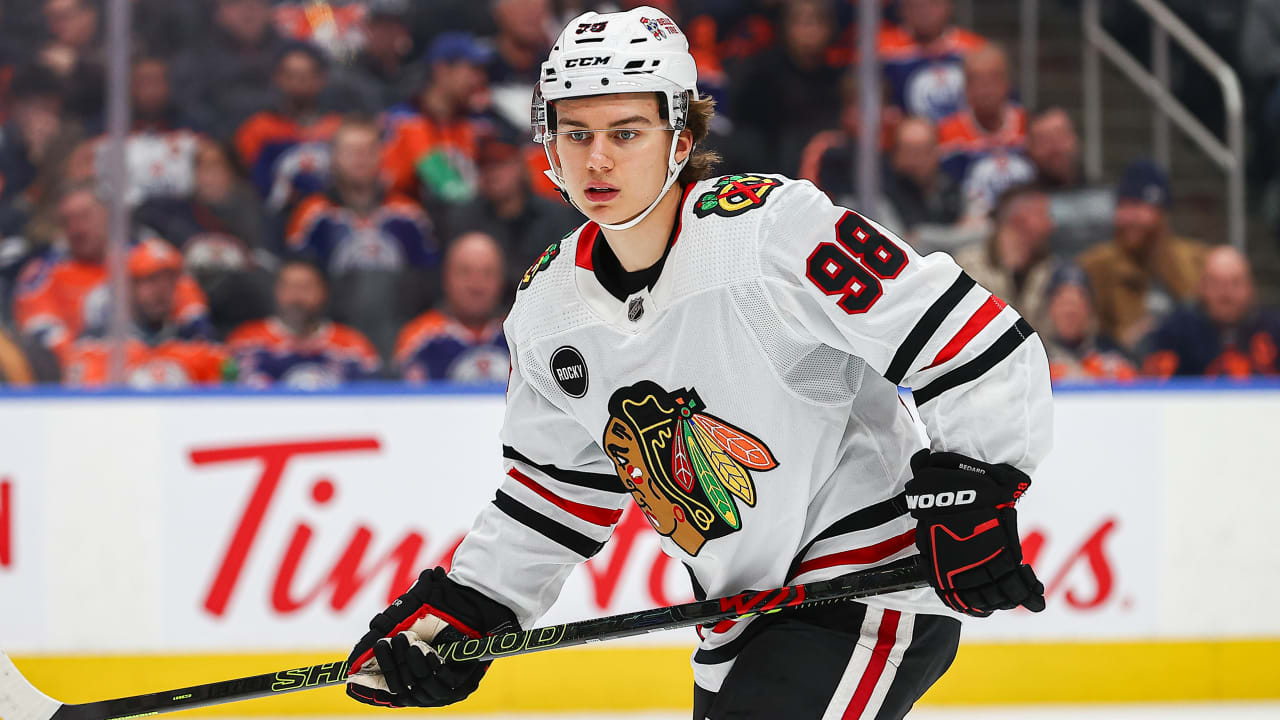
Connor Bedard arrived in Chicago heralded as a generational talent, a player capable of single-handedly altering a franchise`s trajectory. His rookie season offered glimpses of that potential, showcasing elite skill and offensive flair. However, two seasons into his NHL career, a clear picture is emerging: even for a player of Bedard`s caliber, success is a team effort, and the Chicago Blackhawks roster currently offers insufficient support.
While Bedard`s individual brilliance is undeniable, the raw numbers from his sophomore year—67 points in 82 games—represented a slight step back in scoring pace compared to his rookie campaign. More telling are the contextual statistics: a concerning minus-80 rating over two seasons and faceoff percentages consistently below 40 percent. These figures are not necessarily indictments of Bedard`s development, but rather symptoms of the challenging environment he finds himself in. He`s often matched against opponents` top lines without the benefit of established, high-caliber linemates or defensive support that can ease the pressure.
Contrast this situation with that of other young stars entering the league. Macklin Celebrini, another highly touted prospect, benefited significantly in his rookie season from playing alongside a reliable veteran center like Alex Wennberg, who handled tough matchups and critical faceoffs. This allowed Celebrini more freedom to focus on his offensive game. In Chicago, Bedard hasn`t had that luxury, shouldering immense responsibility from day one.
Historically, generational talents who achieved early team success were paired with other elite players almost immediately. Wayne Gretzky had Mark Messier. Sidney Crosby had Evgeni Malkin. Connor McDavid has Leon Draisaitl. These players formed dynamic duos or cores that propelled their teams. Bedard, by comparison, appears somewhat isolated, lacking a comparable running mate who can consistently share the offensive load and defensive responsibilities.
The Blackhawks have attempted to add pieces, bringing in players like Teuvo Teravainen, Tyler Bertuzzi, Alec Martinez, and TJ Brodie in recent times. Yet, the impact has been moderate at best. Martinez has retired, and Brodie was bought out, highlighting the difficulty in finding effective, lasting support through free agency or short-term deals during a rebuild.
The team currently possesses significant salary cap space, reportedly over $22 million. Logic suggests this capital should be used to acquire talent to accelerate the rebuild and support Bedard. However, the free agent market in the current off-season is widely regarded as weak, offering few impact players who could immediately change the team`s dynamic. This leaves the trade market as the most likely avenue for acquiring the needed help.
Looking at other rebuilding teams provides perspective. The San Jose Sharks, despite their recent struggles, seem to be assembling a promising young core around Celebrini with players like Will Smith, William Eklund, and recent high draft picks Sam Dickinson and Michael Misa. While the Blackhawks have promising prospects in Frank Nazar, Artyom Levshunov, and Anton Frondell, the overall picture feels like the Chicago rebuild, specifically in terms of immediate support for Bedard, is lagging.
There is indeed a potential silver lining: the 2026 free agent class is anticipated to be much stronger. The Blackhawks` substantial cap space could position them to make a significant splash then, offering top players the opportunity to join a team with a superstar entering his prime. But the critical question remains: can the Blackhawks afford to wait until the summer of 2026 to provide Bedard with meaningful, high-end support? Allowing their most valuable asset to navigate another season, or two, without adequate help is a gamble that could impact his development and potentially prolong the team`s return to competitiveness. The clock is ticking, and the need for action feels increasingly urgent.

